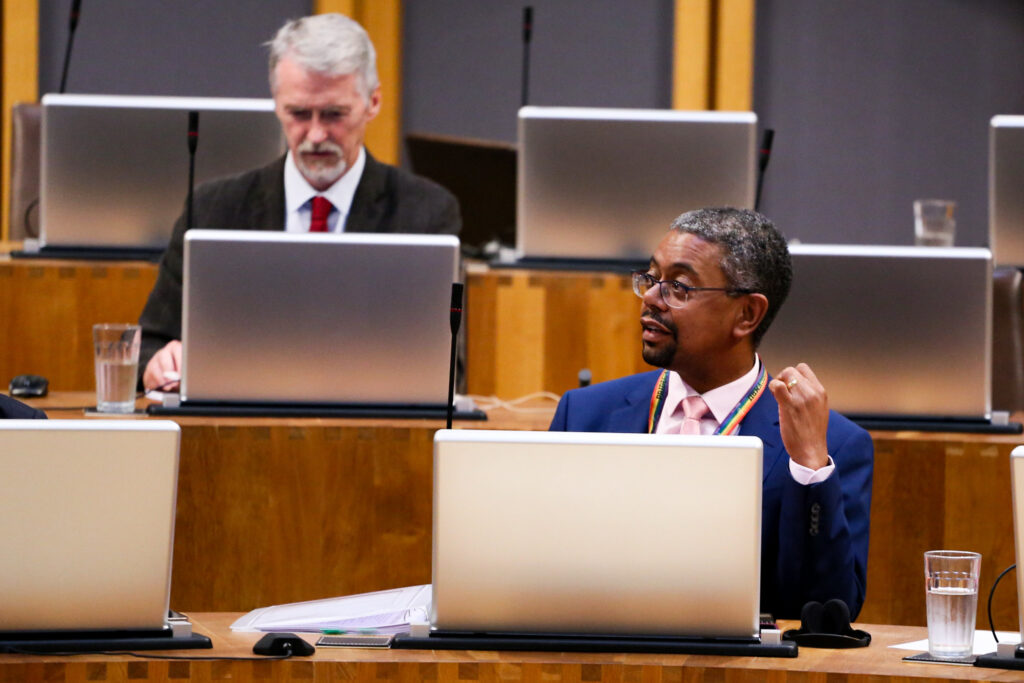Roger Scully reports on his findings from the latest Welsh barometer poll.
This article was first published on the ITV Cymru Wales website.
This week sees publication of the findings of the second poll conducted by the Welsh Political Barometer – a unique collaboration between ITV Cymru Wales, the Wales Governance Centre at Cardiff University, and the leading polling agency YouGov.
The overall message on the state of the parties is one of little change since the inaugural Barometer poll in December – except for voting intentions in May’s European election, where UKIP seem to be advancing significantly in Wales, making ground at the expense of all the other main parties.
First, let’s look at voting intentions for Westminster. We found the following state-of-play for the general election (with changes from our December poll in brackets).
- Labour 47% (+1)
- Conservative 22% (+1)
- Plaid Cymru 11% (-1)
- UKIP 9% (-1)
- Liberal Democrats 7% (-1)
- Others 4% (no change)
So the poll suggests that no party has moved significantly since December – all changes are well within the ‘margin of error’.
If the changes since the last general election implied by these figures were repeated uniformly across Wales, this would produce the following outcome in terms of seats:
- Labour: 34 seats (+8)
- Conservatives: 3 seats (-5)
- Liberal Democrats: 2 seats (-1)
- Plaid Cymru: 1 seat (-2)
The seats to change hands would all be won by Labour: Arfon and Carmarthen East & Dinefwr (from Plaid Cymru); Aberconwy, Preseli Pembs, Carmarthen West & South Pembrokeshire, Vale of Glamorgan, and Cardiff North (all from the Conservatives); and Cardiff Central (from the Liberal Democrats). Labour would also retain all of the 26 seats won in 2010. The Conservatives would retain only Clwyd West, Montgomery, and Monmouth; the Liberal Democrats would hold Ceredigion, and (very narrowly from the Conservatives) Brecon & Radnor; Plaid Cymru would retain only Dwyfor Meirionnydd.
In short, our poll suggests that Labour continues to be in a very strong position in Wales for the forthcoming general election. At present, it seems not so much a case of whether Labour will gain seats in Wales at the next election, but of how many gains it will make and at whose expense.
What about the National Assembly? For the constituency vote, the results of our new poll were (with changes from our December poll in brackets):
- Labour 42% (-1)
- Conservative 21% (+2)
- Plaid Cymru 19% (-1%)
- Liberal Democrats 9% (no change)
- UKIP 5% (-2)
- Others 3% (no change)
Again, all changes since our last poll are very much within the ‘margin of error’. And, if the changes since the last Assembly election implied here were repeated across Wales, not a single constituency seat would change hands from 2011!
For the regional list vote, we saw the following results (with changes from our December poll again indicated):
- Labour 39% (-1)
- Conservative 19% (no change)
- Plaid Cymru 17% (+2)
- UKIP 10% (no change)
- Liberal Democrats 9% (no change)
- Others 6% (-1)
Taking into account both the constituency and list results, this produces the following projected seat outcome for a National Assembly election (with aggregate changes from 2011 indicated in brackets):
- Labour: 30 (no change); 28 constituency AMs, 2 list AMs
- Conservative: 11 (-3); 6 constituency AMs, 5 list AMs
- Plaid Cymru: 9 (-2); 5 constituency AMs, 4 list AMs
- Liberal Democrats: 5 (no change); 1 constituency AM, 4 list AMs
- UKIP 5 (+5); all 5 would be list AMs
These figures show that gaining its elusive absolute majority in the Assembly still remains difficult for Labour. But the poll also shows Labour continuing to be well ahead of all the other parties in Wales, with the non-Labour forces even more fractured by the rise of UKIP.
While the voting figures for Westminster and the Assembly show little change on our previous poll, those for the forthcoming European election in May are rather more exciting. Here we see the following voting intentions (with changes from our December poll again indicated):
- Labour 39% (-2)
- UKIP 18% (+5)
- Conservative 17% (-3)
- Plaid Cymru 12% (-1)
- Liberal Democrats 7% (-1)
- Others 7% (+2)
If repeated next May, these figures would see Labour winning two of the four Welsh MEPs,with UKIP and the Conservatives also winning one. The main losers would be Plaid Cymru; Jill Evans, who has represented Plaid as one of Wales’ MEPs since 1999,would lose her seat.
More detailed analysis of the poll will be provided in several posts over the next couple of weeks on my blog, Elections in Wales.






No matter how bad things get people will still vote for us!!
The one party state continues, as will Wales’ decline.